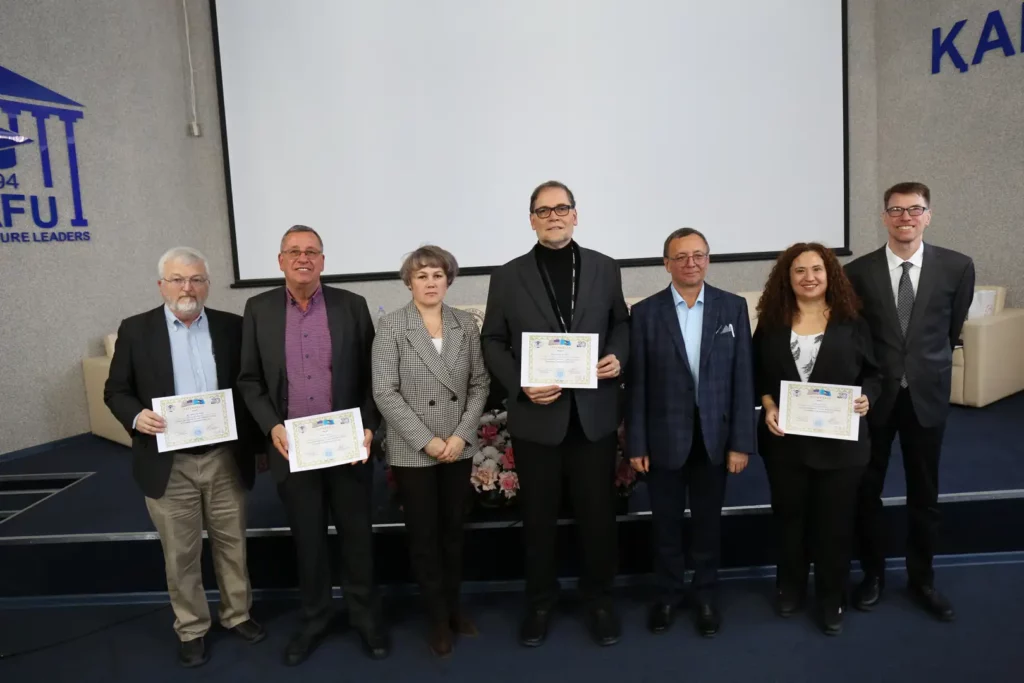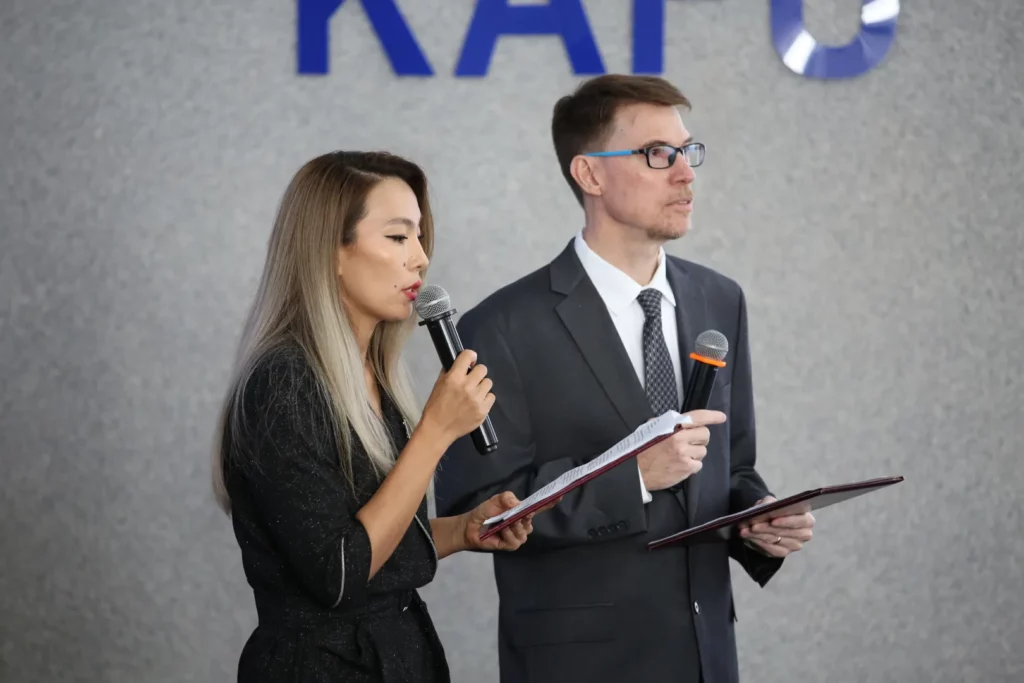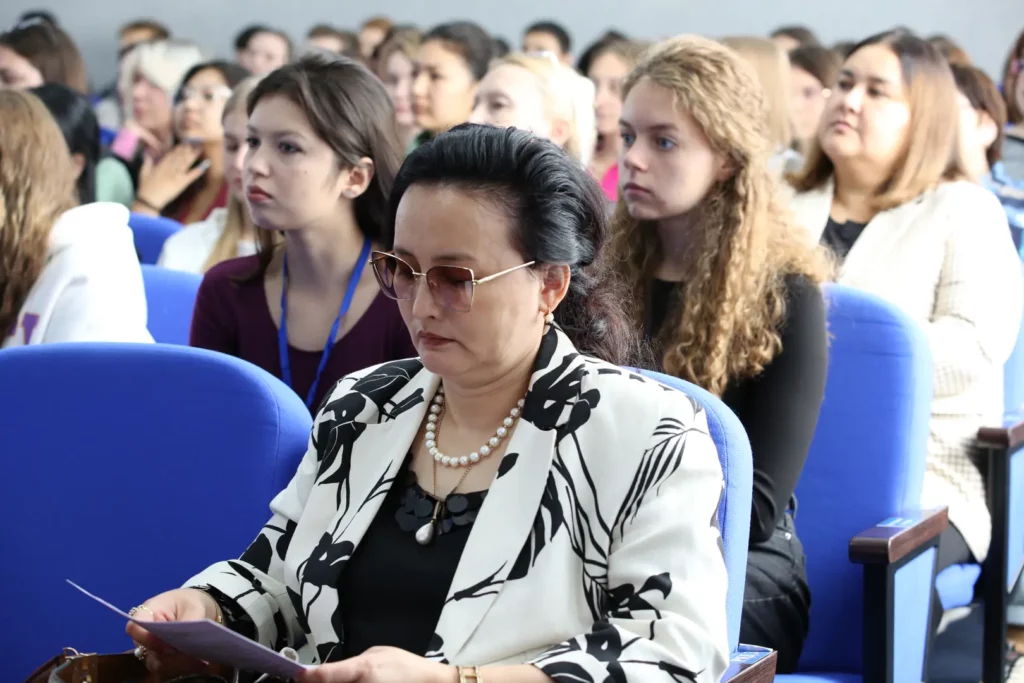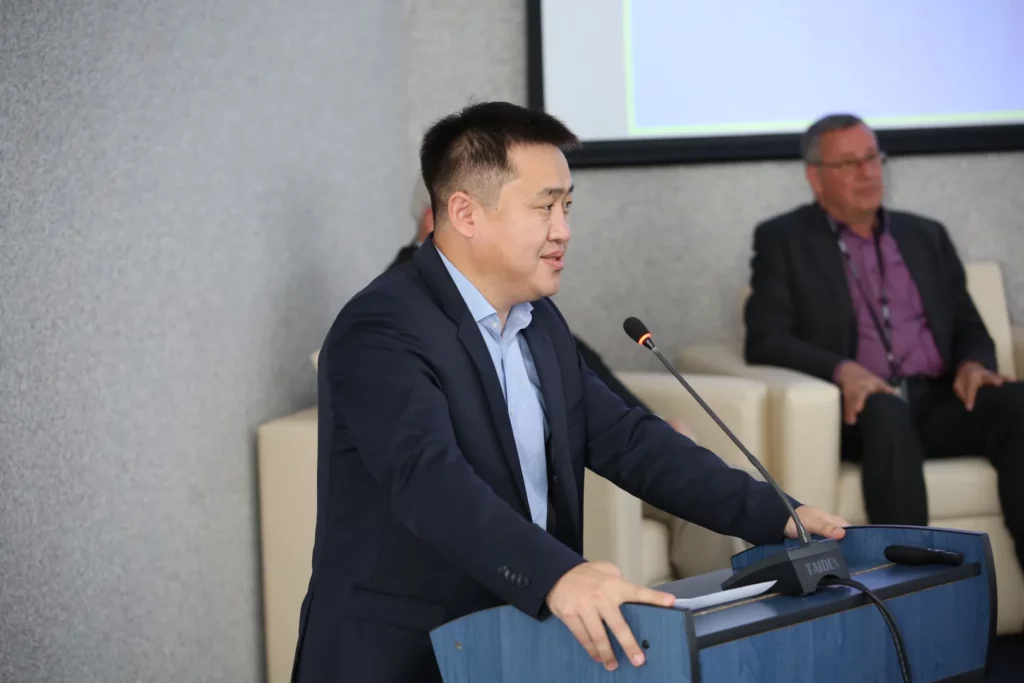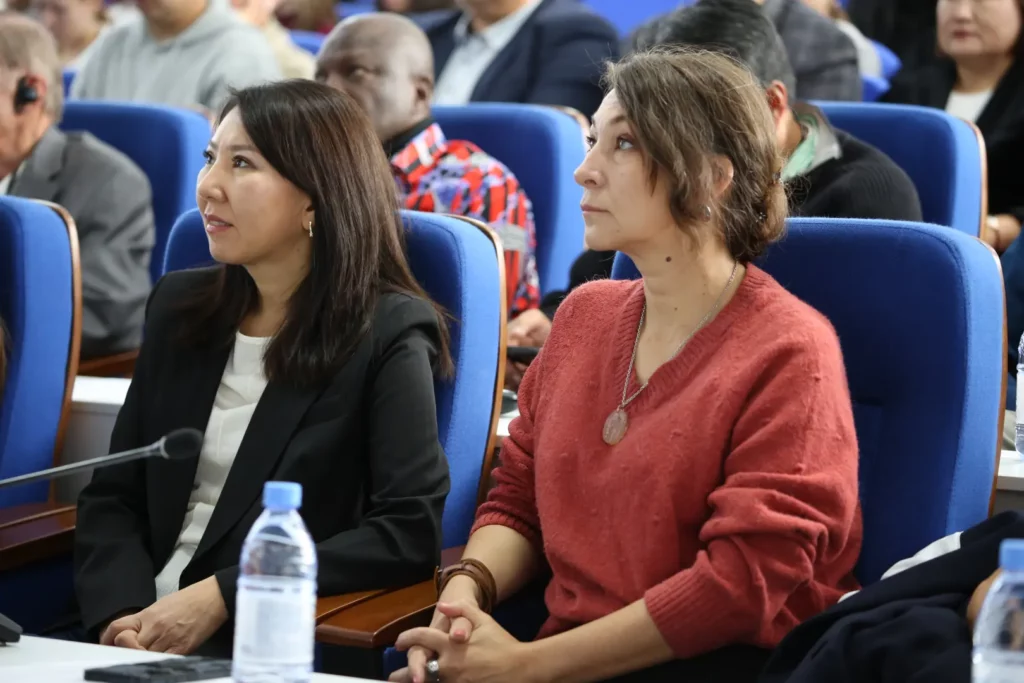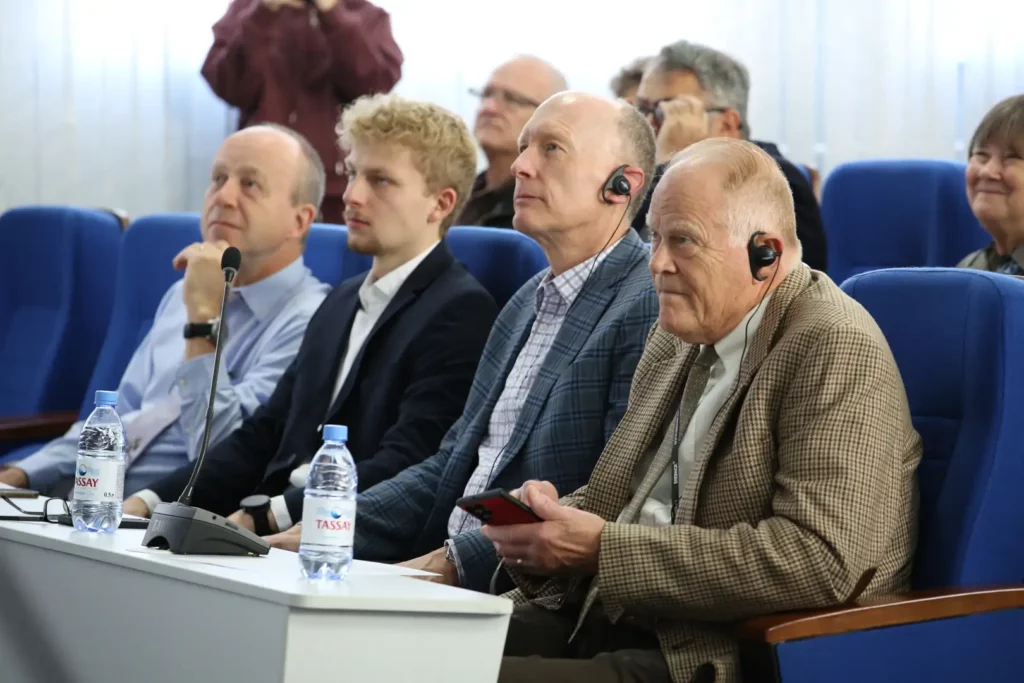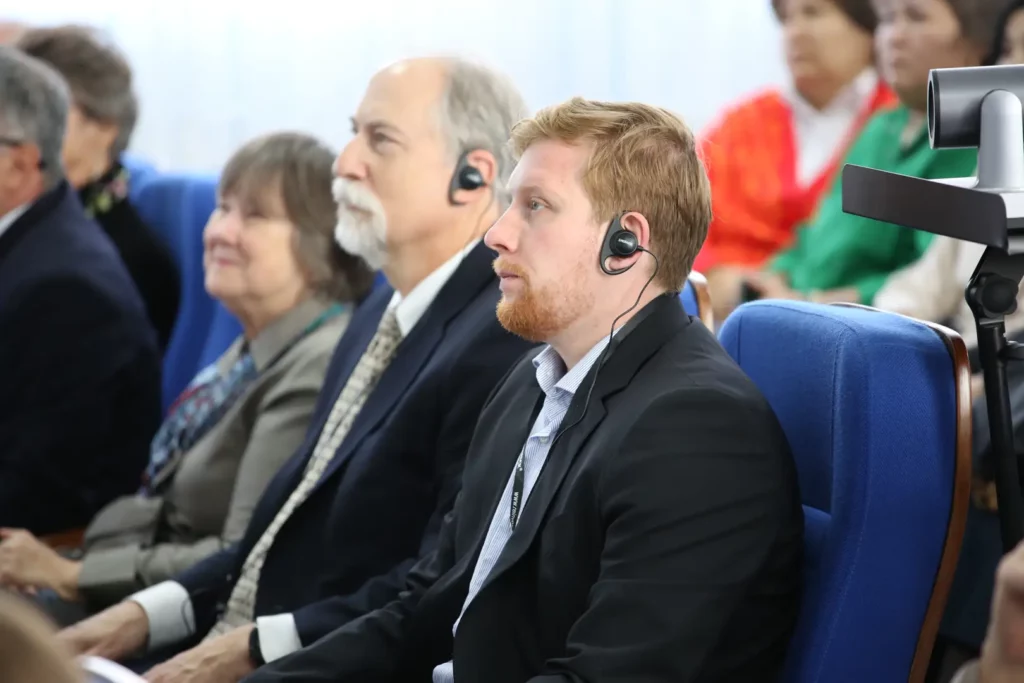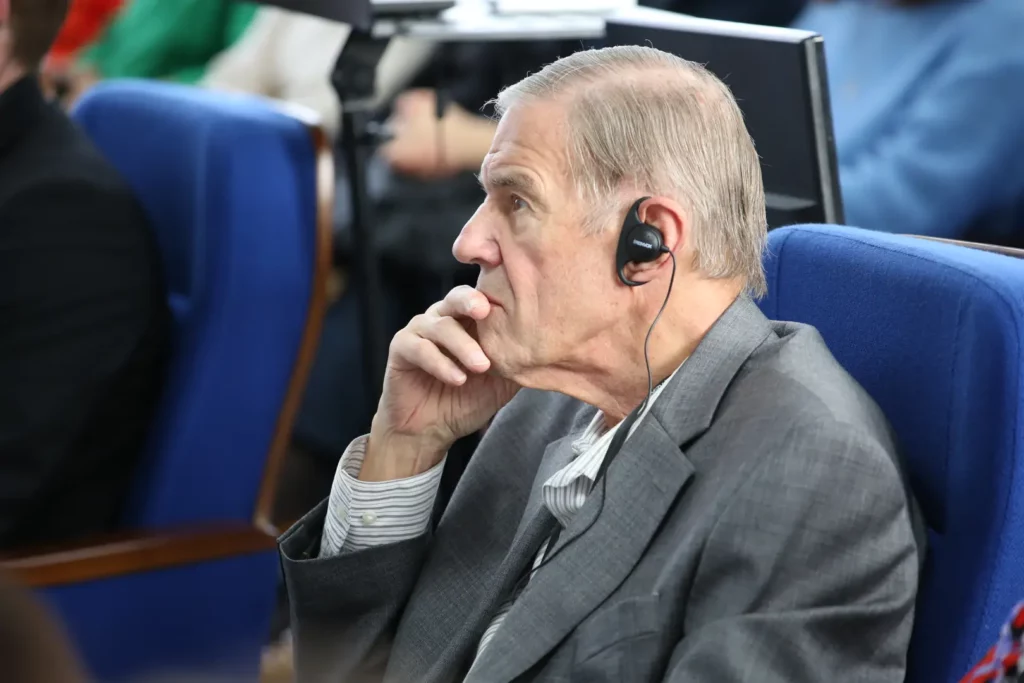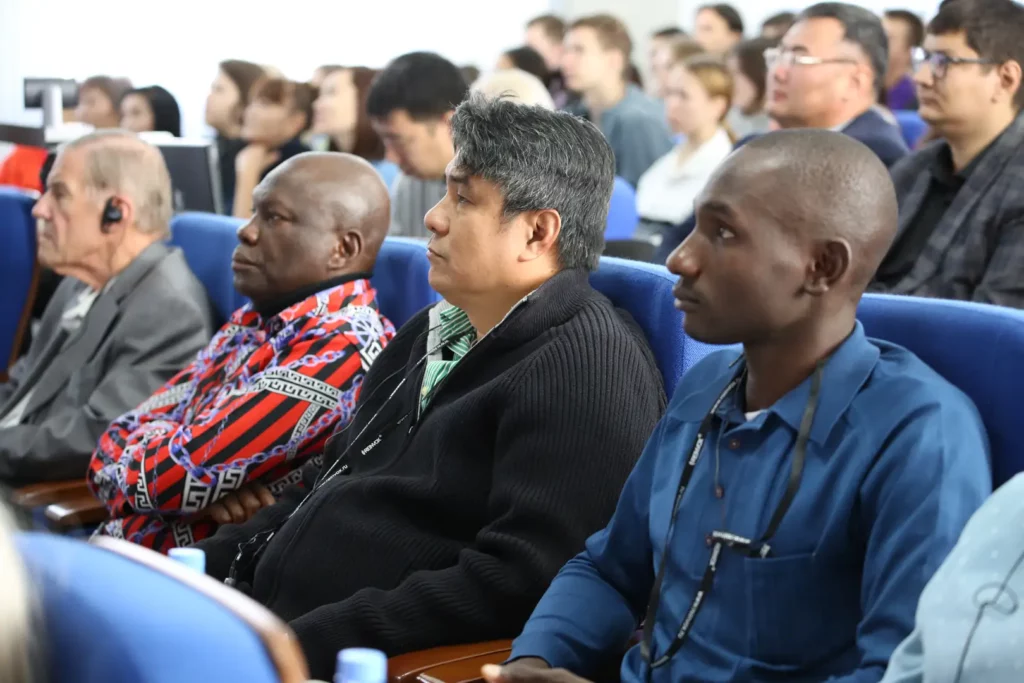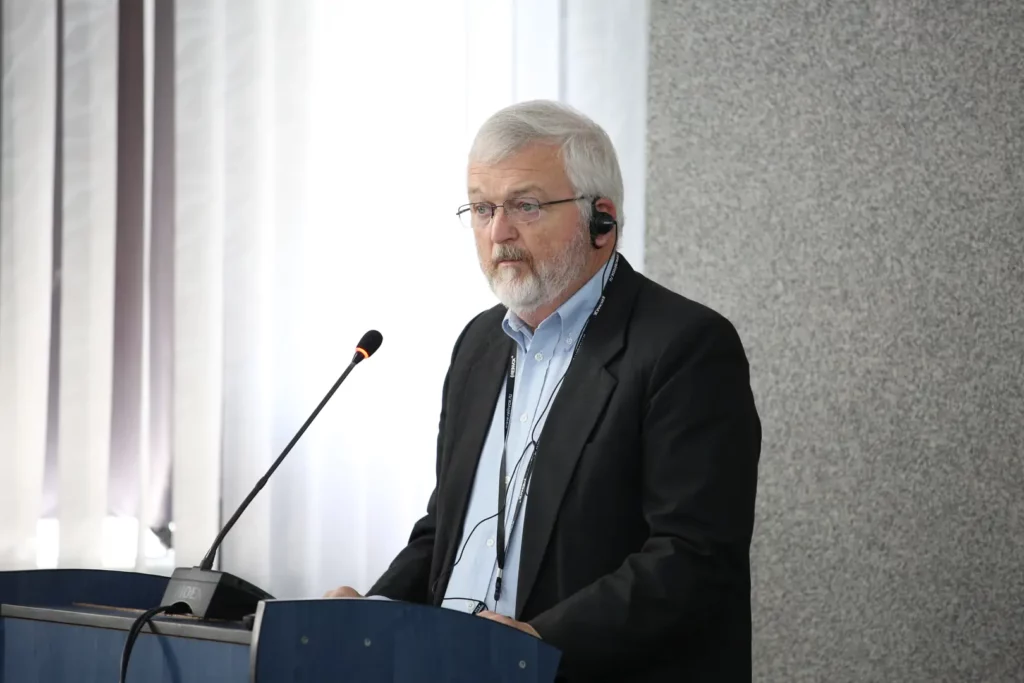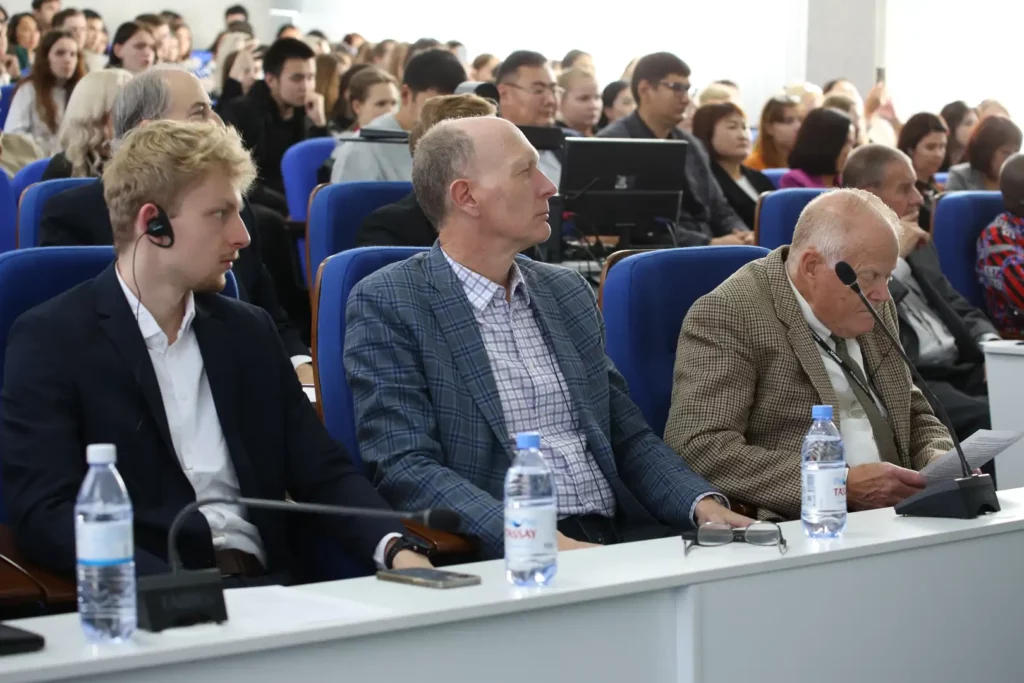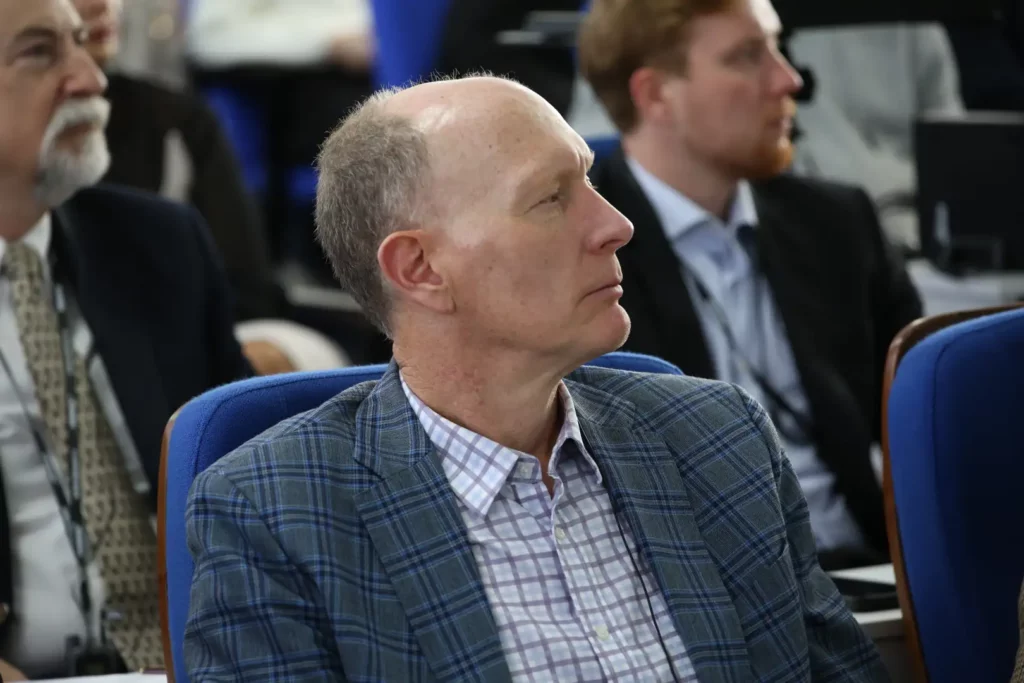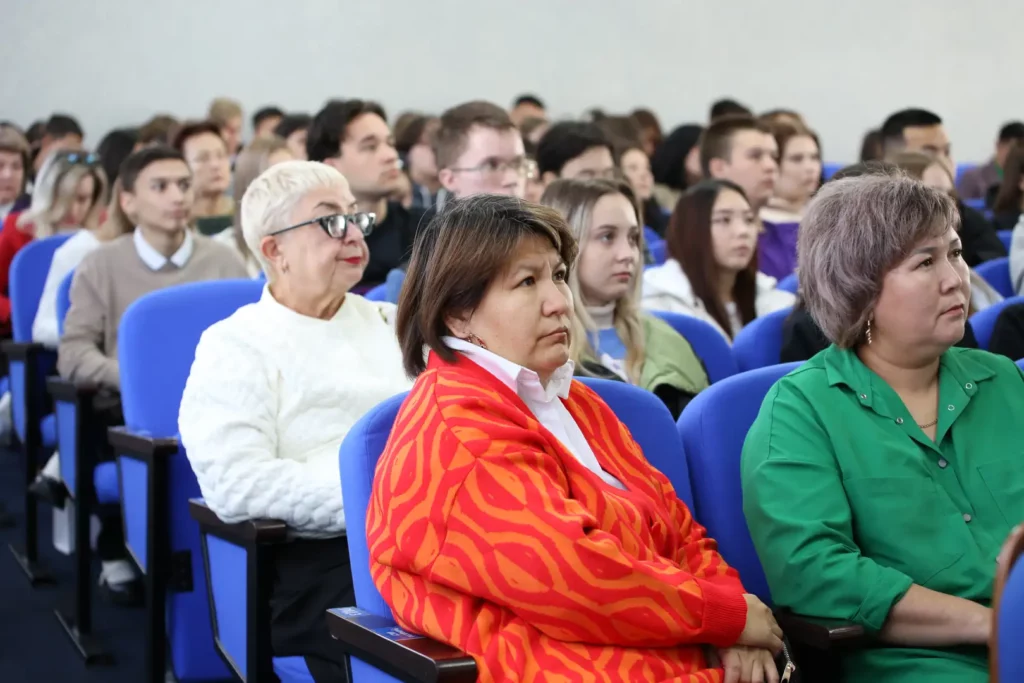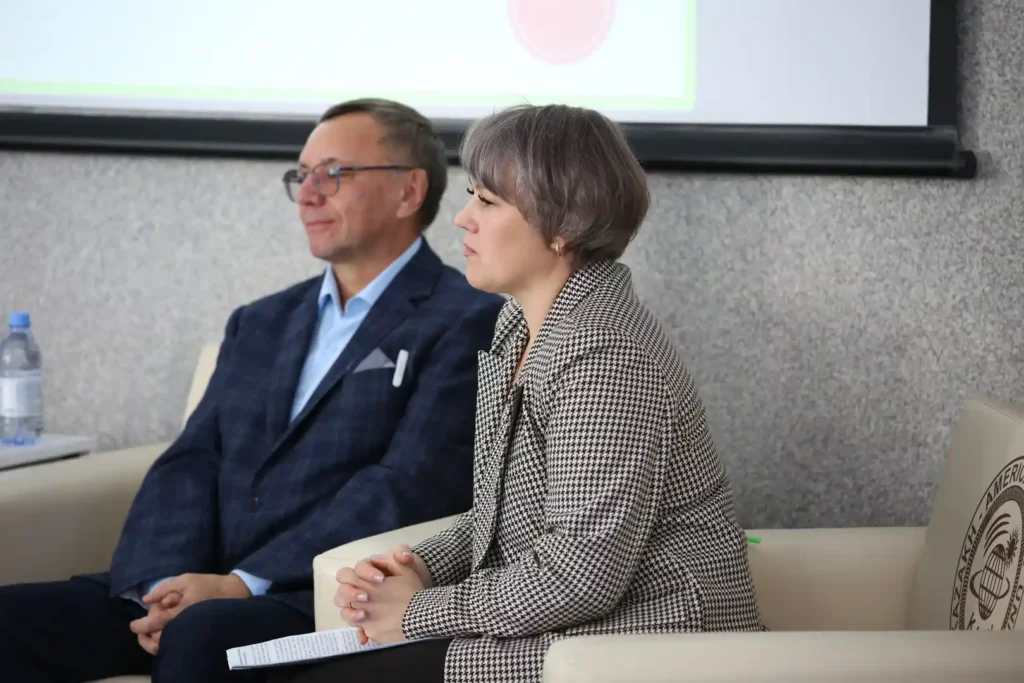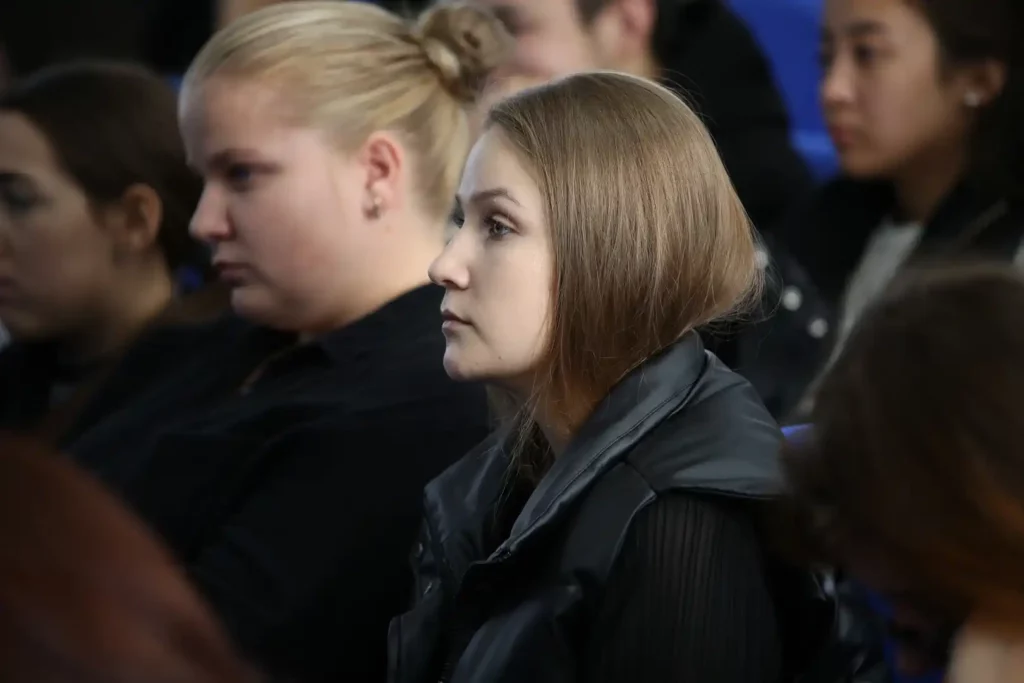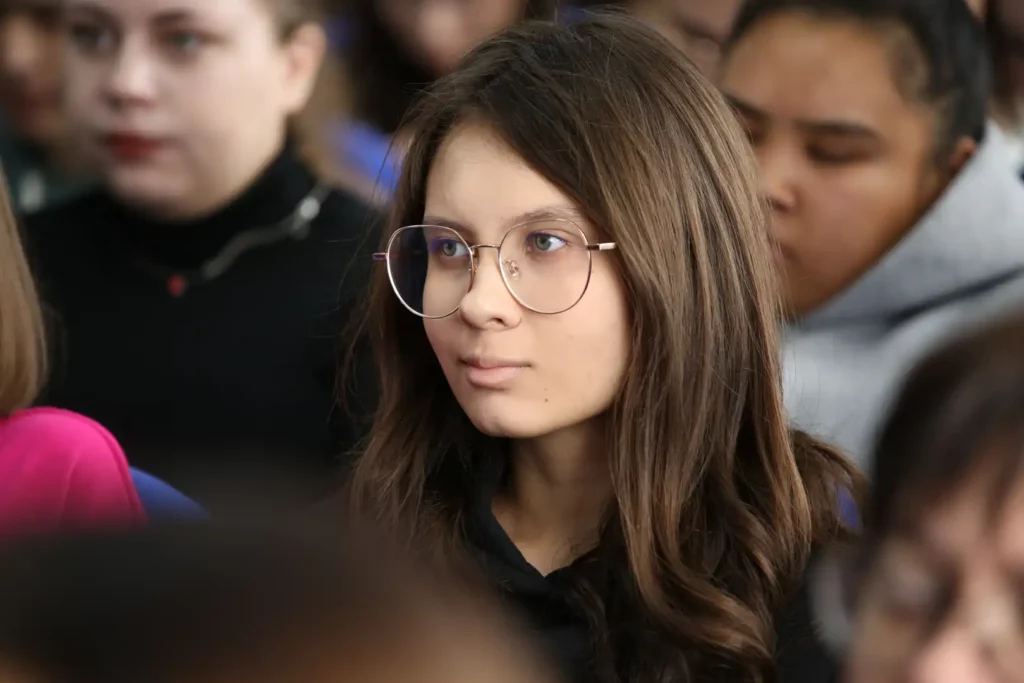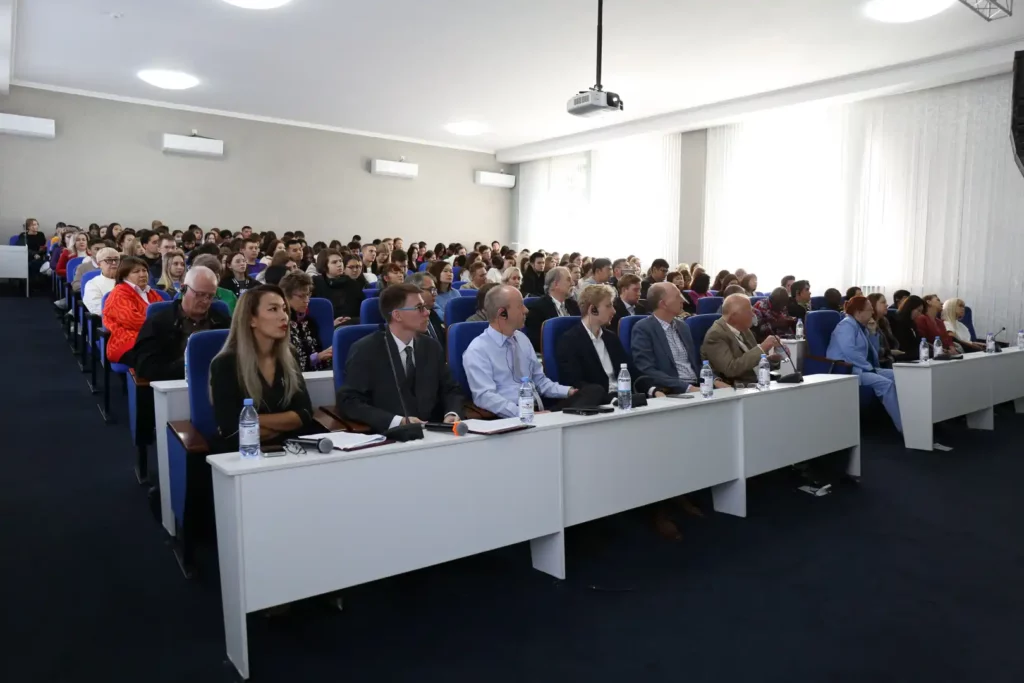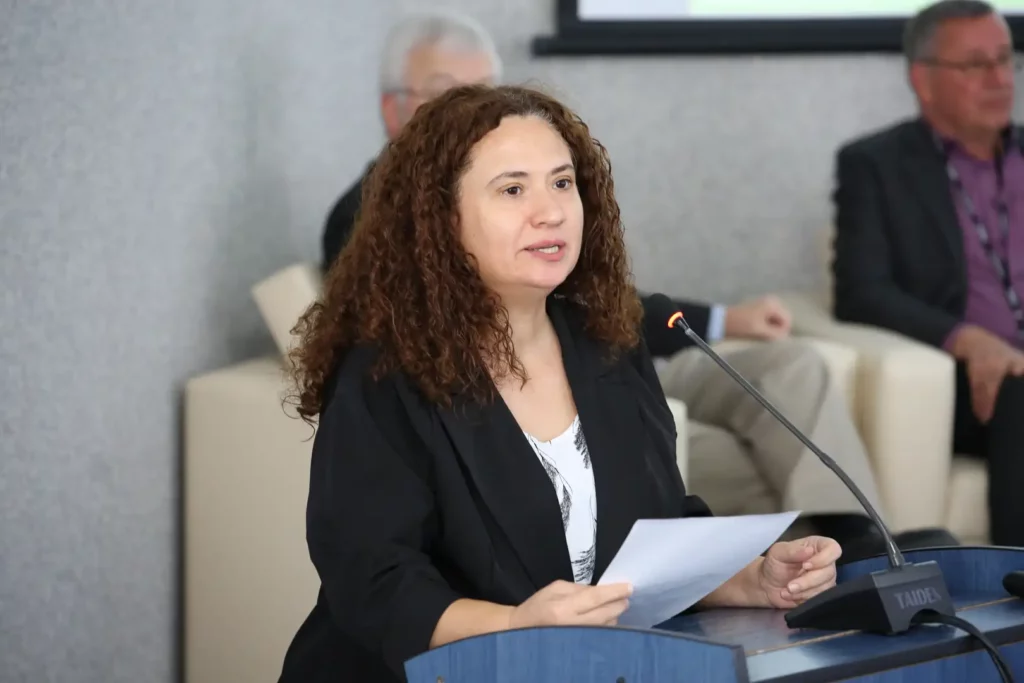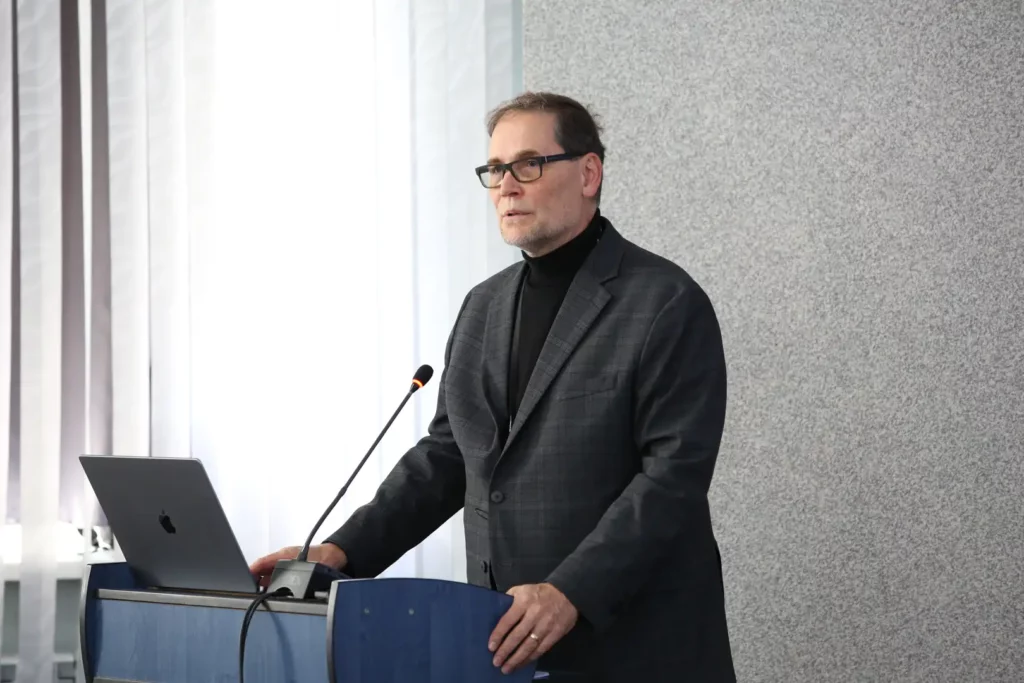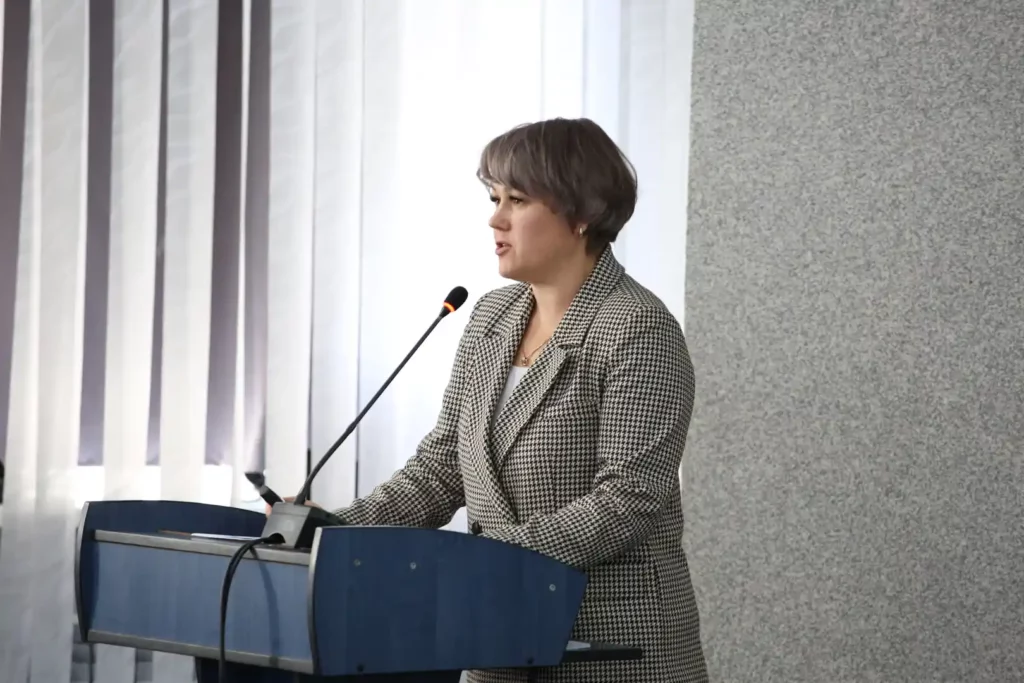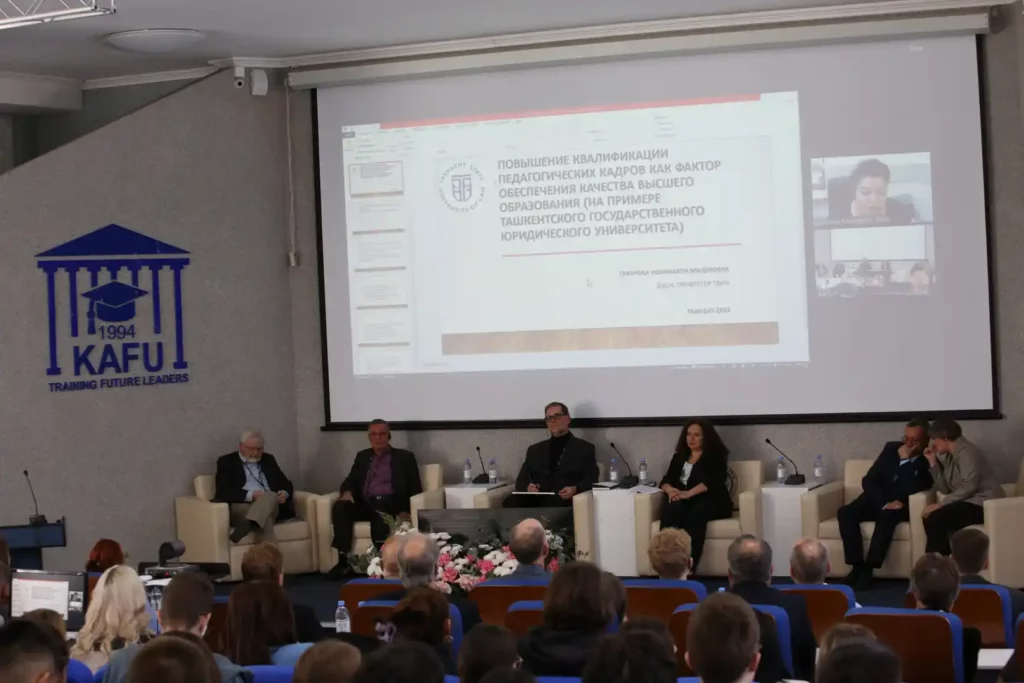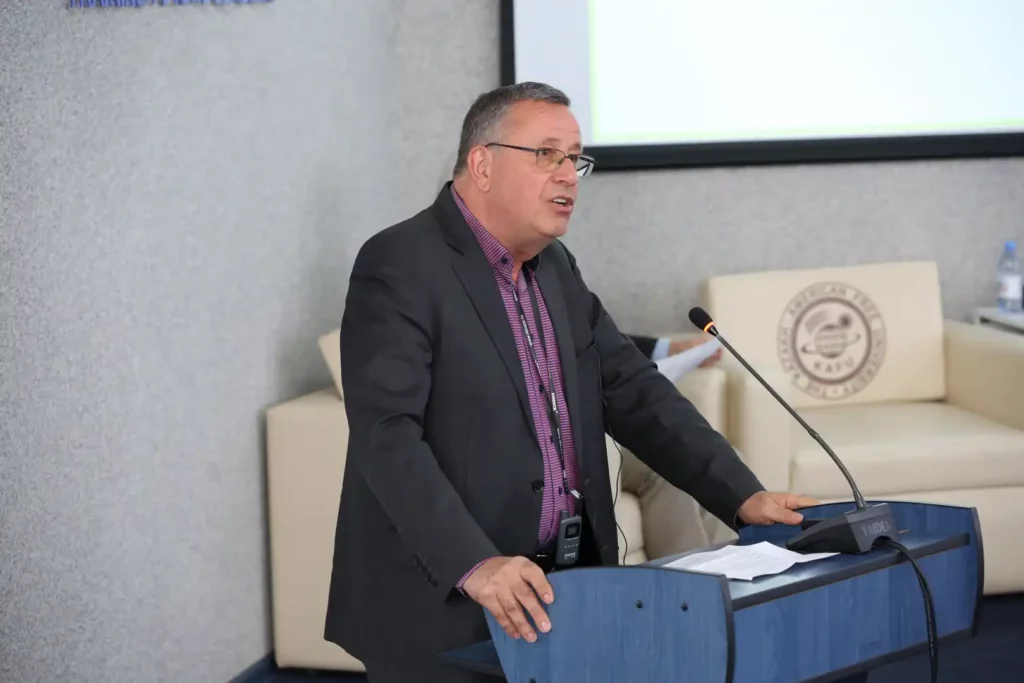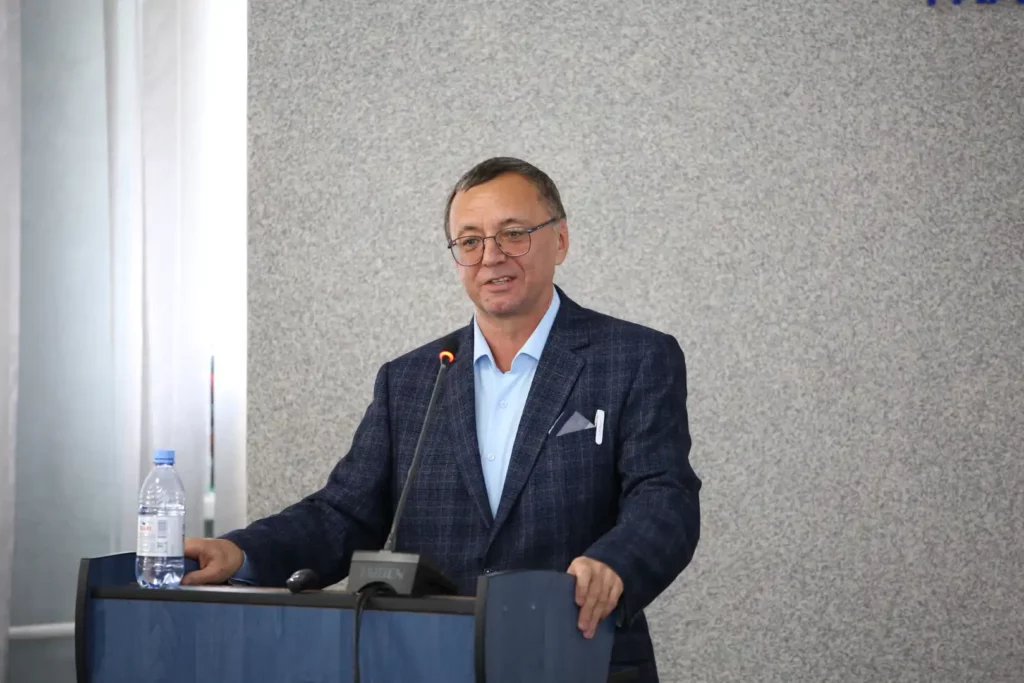Plenary Session of the International Scientific Congress “Science and Education of the 21st Century: Challenges and Trends in the Context of Sustainable Development”
On September 25, 2024, the plenary session of the International Scientific Congress “Science and Education of the 21st Century: Challenges and Trends in the Context of Sustainable Development” was held in the assembly hall of the main building of KAFU. The traditional scientific congress is dedicated to the 30th anniversary of the university, and is also aimed at uniting scientists and researchers from the USA, Turkey, Kazakhstan, Uzbekistan, Germany, Russia and other countries.
Cooperation with the international educational space opens up a unique opportunity for KAFU to solve global problems, improve the quality of education, strengthen political and cultural ties, and develop innovations.
The congress was opened by the First Vice-President of KAFU, PhD Zhasulan Y. Baikenov. He congratulated all those present on the start of the Congress and noted KAFU’s commitment to continuous innovation and research of important topics, including those related to the use of artificial intelligence.
The reports prepared by the best specialists in the field of education covered current scientific issues and also allowed for the exchange of experience between participants from different countries.
The first to speak was Doctor of Philosophy, Associate Professor of the Department of Law and International Relations Ronald Brooks Wiley. Professor Wiley’s report entitled “International Educational Partnership (on the Example of Central Asia)” highlighted the importance of international regional cooperation for the development of higher education and science using the example of the Kazakh-American Free University, Samarkand International University of Technology and other universities.
The next important issue was the problems of integration of higher education in Turkic-speaking countries. International educational cooperation of Turkic-speaking countries promotes the exchange of knowledge and technology, creating conditions for the implementation of innovative solutions. All this was covered by Doctor of Philosophy, Associate Professor of B. Ecevit University (Turkey) Gul Banu Duman in her report on the topic “The Role of the Turkish Language in the Integration of Higher Education in Turkic-Speaking Countries Where Turkish is Spoken.”
Douglas Hartman, Professor of Technology, Learning, and Literacy in Teacher Education, looked at the use of AI from an interesting angle. He has been teaching at the universities of Pennsylvania, Connecticut, and Michigan for almost 30 years. His report on “The Unexpected Upsides of AI in Educational Research and Practice” was a summary of valuable teaching experience and scientific research. He noted that AI technologies are currently used in all aspects of our lives. But scientists should be more careful in using neural networks and monitor what AI offers to scientists and university students. Yulia A. Gavrilova, PhD in Law and Professor at KAFU, presented a report on “Gender Equality in Science and Higher Education in Kazakhstan: Challenges and Achievements.” She analyzed countries around the world in terms of gender division of academic degrees and concluded that the interest of the female researchers in science has been increasing over the years. However, men still predominate in the positions of professors and rectors of educational institutions. Doctor of Law, Professor of Tashkent State Law University Nazima Ye. Gafurova took up the consideration of strategies for improving the qualifications of teaching staff. In an online format, she presented her report on the topic: “Improving the Qualifications of Teaching Staff as A Factor in Ensuring the Quality of Higher Education (on the example of Tashkent State University of Law).”
DAAD regional lecturer, Professor of Law Thomas Schmitz prepared and presented a report on the topic “Digitalization of Higher Education: Modern Challenges and Prospects”, in which he answered several important questions at once. He described in detail the importance of the ability to use digital technologies in education and science, as well as the advantages and disadvantages of their application in practice.
The final report was a presentation on the topic “Continuous Education in the Context of the Idea of the Future: Pedagogical Technologies and Practices of Adult Education”, prepared by Candidate of Pedagogical Sciences, Associate Professor of the Department of Pedagogical Technologies of Continuous Education of Moscow City Pedagogical University Andrey A. Terov. He highlighted adulthood as a result and a necessary basic condition for continuous education. At the end of his speech, he presented valuable gifts on behalf of the Moscow City Pedagogical University to the university administration.
After all the speeches were over, the participants of the plenary session had a unique opportunity to ask the speakers questions of interest on the topics of their scientific research and receive detailed answers.
At the end of the event, the speakers were given special thanks for their invaluable contribution to the development of science and international cooperation, and certificates of participation in the plenary session were issued.
Material prepared by Daria Serebrova
